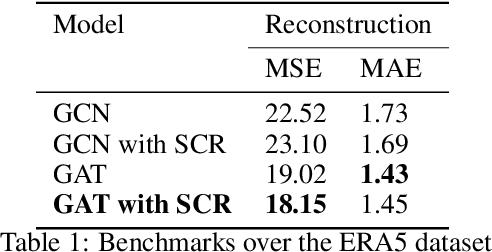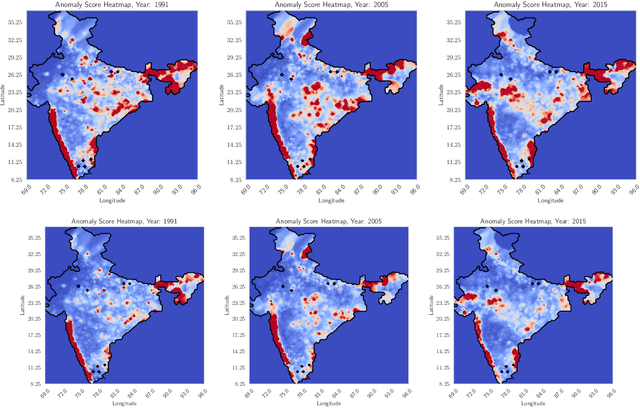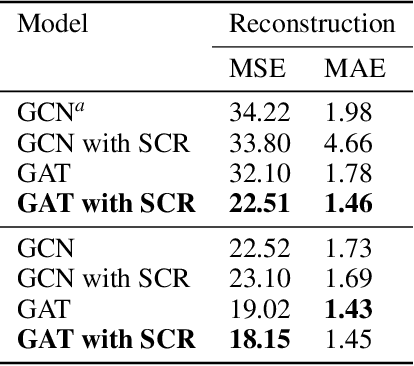Mihir Agarwal
Spatially Regularized Graph Attention Autoencoder Framework for Detecting Rainfall Extremes
Nov 12, 2024



Abstract:We introduce a novel Graph Attention Autoencoder (GAE) with spatial regularization to address the challenge of scalable anomaly detection in spatiotemporal rainfall data across India from 1990 to 2015. Our model leverages a Graph Attention Network (GAT) to capture spatial dependencies and temporal dynamics in the data, further enhanced by a spatial regularization term ensuring geographic coherence. We construct two graph datasets employing rainfall, pressure, and temperature attributes from the Indian Meteorological Department and ERA5 Reanalysis on Single Levels, respectively. Our network operates on graph representations of the data, where nodes represent geographic locations, and edges, inferred through event synchronization, denote significant co-occurrences of rainfall events. Through extensive experiments, we demonstrate that our GAE effectively identifies anomalous rainfall patterns across the Indian landscape. Our work paves the way for sophisticated spatiotemporal anomaly detection methodologies in climate science, contributing to better climate change preparedness and response strategies.
UATTA-EB: Uncertainty-Aware Test-Time Augmented Ensemble of BERTs for Classifying Common Mental Illnesses on Social Media Posts
Apr 10, 2023

Abstract:Given the current state of the world, because of existing situations around the world, millions of people suffering from mental illnesses feel isolated and unable to receive help in person. Psychological studies have shown that our state of mind can manifest itself in the linguistic features we use to communicate. People have increasingly turned to online platforms to express themselves and seek help with their conditions. Deep learning methods have been commonly used to identify and analyze mental health conditions from various sources of information, including social media. Still, they face challenges, including a lack of reliability and overconfidence in predictions resulting in the poor calibration of the models. To solve these issues, We propose UATTA-EB: Uncertainty-Aware Test-Time Augmented Ensembling of BERTs for producing reliable and well-calibrated predictions to classify six possible types of mental illnesses- None, Depression, Anxiety, Bipolar Disorder, ADHD, and PTSD by analyzing unstructured user data on Reddit.
 Add to Chrome
Add to Chrome Add to Firefox
Add to Firefox Add to Edge
Add to Edge